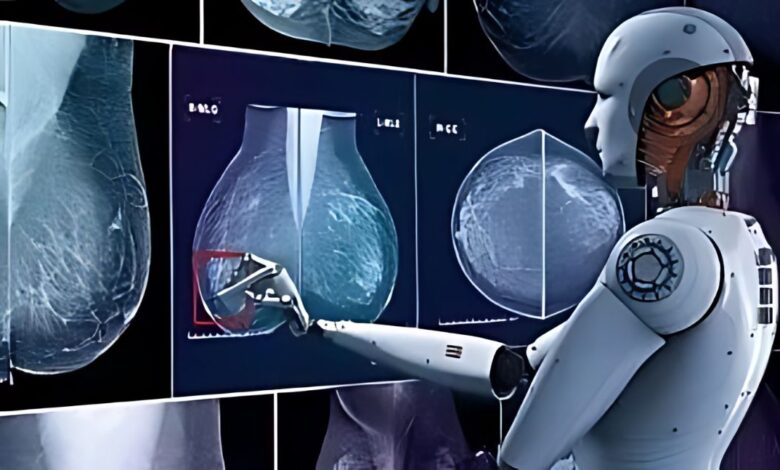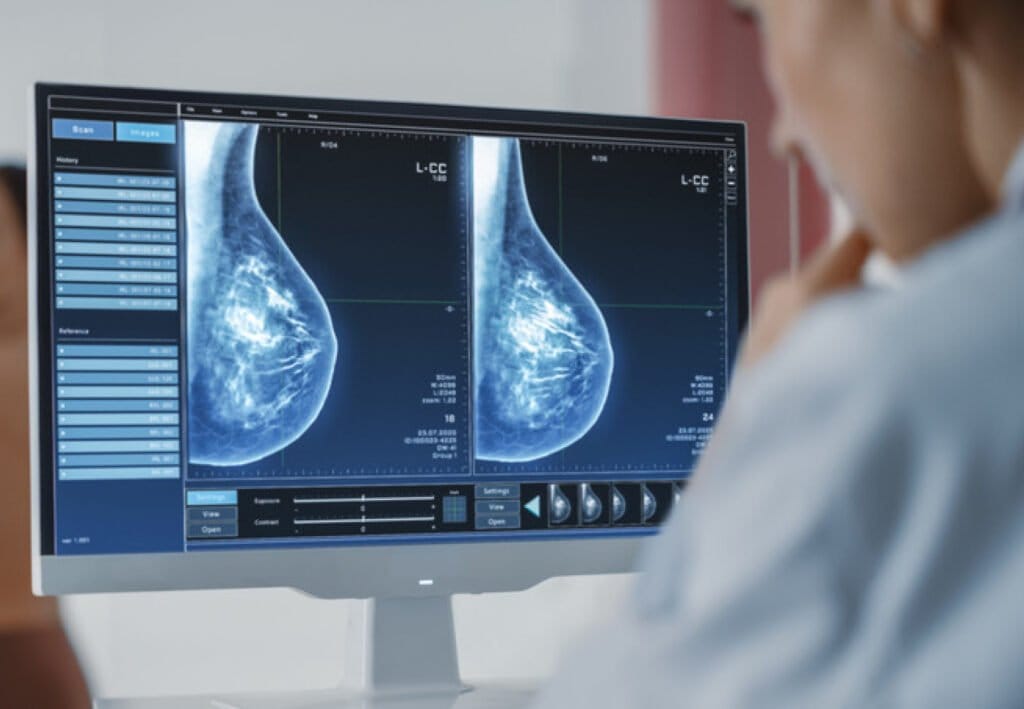AI Breakthroughs in Breast Cancer
The Role of AI in Early Detection and Personalized Treatment

Breast cancer, one of the most common cancers among women, has long been a focal point of medical research. Early detection and precise treatment have been critical in improving survival rates. In recent years, Artificial Intelligence (AI) has emerged as a game-changer in this field, offering breakthroughs that could transform the way breast cancer is detected, diagnosed, and treated. Here’s a closer look at how AI is revolutionizing breast cancer care.
The Role of AI in Early Detection
Early detection of breast cancer significantly increases the chances of successful treatment. Traditional methods like mammography have been the standard, but they are not foolproof. Radiologists can miss subtle signs of cancer, and false positives can lead to unnecessary anxiety and invasive procedures.
AI is enhancing the accuracy of mammograms by analyzing images with a level of detail that surpasses human capabilities. Machine learning algorithms, trained on vast datasets of mammogram images, can detect minute abnormalities that might be missed by even the most experienced radiologists. These AI systems can also reduce false positives by distinguishing between benign and malignant growths with greater precision.
One notable advancement comes from researchers at MIT, who have developed an AI model that can predict breast cancer up to five years before it manifests. By analyzing the tissue patterns on mammograms, the AI can identify women at risk long before traditional methods would. This breakthrough leverages AI’s ability to detect patterns and anomalies that are invisible to the human eye, potentially enabling earlier and more effective interventions.
AI-Driven Diagnosis and Personalized Treatment
AI is also playing a crucial role in the diagnosis and classification of breast cancer. Pathologists traditionally rely on biopsies and lab tests to determine the type and stage of cancer. However, AI can analyze biopsy images and genetic data much faster and with high accuracy, helping to identify the cancer subtype and its aggressiveness.
Moreover, AI systems are now being integrated into the development of personalized treatment plans. By analyzing data from thousands of patients, AI can identify patterns and predict how a specific cancer will respond to various treatments. This enables oncologists to tailor treatment plans that are more effective and have fewer side effects.
In addition to mammogram analysis, another significant development from MIT involves an AI model designed to identify the stages of ductal carcinoma in situ (DCIS), a type of preinvasive breast cancer. This model can determine the likelihood of DCIS progressing to invasive cancer by analyzing the spatial organization of cells in tissue samples. This advancement could help reduce overtreatment by providing more accurate assessments of cancer progression, allowing for more personalized and appropriate treatment strategies.
Enhancing Patient Monitoring and Follow-Up Care
AI is not just transforming the initial stages of breast cancer care but also the ongoing monitoring and follow-up. Wearable devices and mobile apps powered by AI can track a patient’s health metrics in real-time, alerting both the patient and their healthcare team to any concerning changes. This continuous monitoring is crucial for catching recurrences early and adjusting treatment plans as needed.
For instance, AI-powered tools can analyze data from wearable devices, such as heart rate, activity levels, and sleep patterns, to detect signs of a patient’s overall well-being. If the AI detects any anomalies, it can notify the patient’s doctor, allowing for timely intervention.

Overcoming Challenges and Ethical Considerations
Despite the promise of AI in breast cancer care, there are challenges to overcome. The accuracy of AI models depends on the quality and diversity of the data they are trained on. If the training data lacks diversity, the AI may not perform as well on underrepresented groups, potentially leading to disparities in care.
Moreover, the integration of AI into clinical practice raises ethical concerns, particularly around data privacy and the potential for AI to replace human judgment. Ensuring that AI is used to augment, rather than replace, the expertise of healthcare professionals is essential for maintaining trust and safety in breast cancer treatment.
The integration of AI into breast cancer detection, diagnosis, and treatment marks a significant breakthrough in the fight against this disease. By improving the accuracy of early detection, enabling personalized treatment plans, and enhancing patient monitoring, AI is poised to save lives and improve the quality of care for millions of women worldwide.
As with any technological advancement, it is essential to address the challenges and ethical considerations associated with AI in healthcare. By doing so, we can fully harness the potential of AI to create a future where breast cancer is detected earlier, treated more effectively, and, ultimately, becomes a disease of the past.
This ongoing revolution in breast cancer care is just the beginning, and the future looks promising as AI continues to evolve and improve.